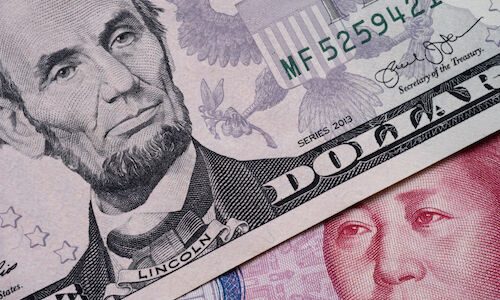Even Chinese Banks Comply With U.S. Sanctions
Despite fiery rhetoric from Beijing, even Chinese banks are opting to comply with the latest sanctions issued by Washington against 11 Hong Kong and mainland China officials.
Bank of China, China Construction Bank (CCB) and China Merchants Bank were all named as Chinese lenders that have turned cautious on opening new accounts for the 11 recently sanctioned individuals, according to a «Bloomberg» report citing unnamed sources.
At least one of the bank has suspended account-opening activities for the sanctioned individuals. Others have banned transactions via the U.S. or now require sign-offs what was a previously simple and straightforward transaction.
According to Bloomberg data, China’s four largest banks had $1.1 trillion in dollar funding as of 2019-end.
Solution: Local Banks?
Although the sanctions will act as a hurdle to access any bank with links to the U.S., financial services could still be accessible through a handful of local players with no exposure.
«Risks for listed China banks are relatively muted, in our view, as the four China officials on the list may obtain banking services with local unlisted Chinese banks that do not have dollar or U.S. businesses,» according to a J.P. Morgan note authored by Hong Kong-based analysts.
Hong Kong and mainland lenders join global banks’ compliance drive to address the latest sanctions issued earlier this week with many reportedly tightening the screening criteria for politically exposed persons. Citi and Standard Chartered were explicitly named with claims that the former had suspended accounts with some of the sanctioned individuals while the latter is monitoring the transactions of such individuals and suspending new account-opening for them.
NSL Violation?
Interestingly, the national security law – named as the primary pretext for U.S. sanctions – prohibits the application of sanctions or hostile action against Hong Kong and mainland China. It remains to be seen if this will be applied against Chinese banks and how they can reconcile the conflicts of complying with two mutually exclusive rules.
«The most likely result – if China is serious about enforcing their own provision of the national security law prohibiting compliance with foreign sanctions – is that the banks will have to pick the US or Hong Kong,” said Julian Ku, a professor of constitutional and international law at New York-based Hofstra University, in a separate report. «But not both.»






















